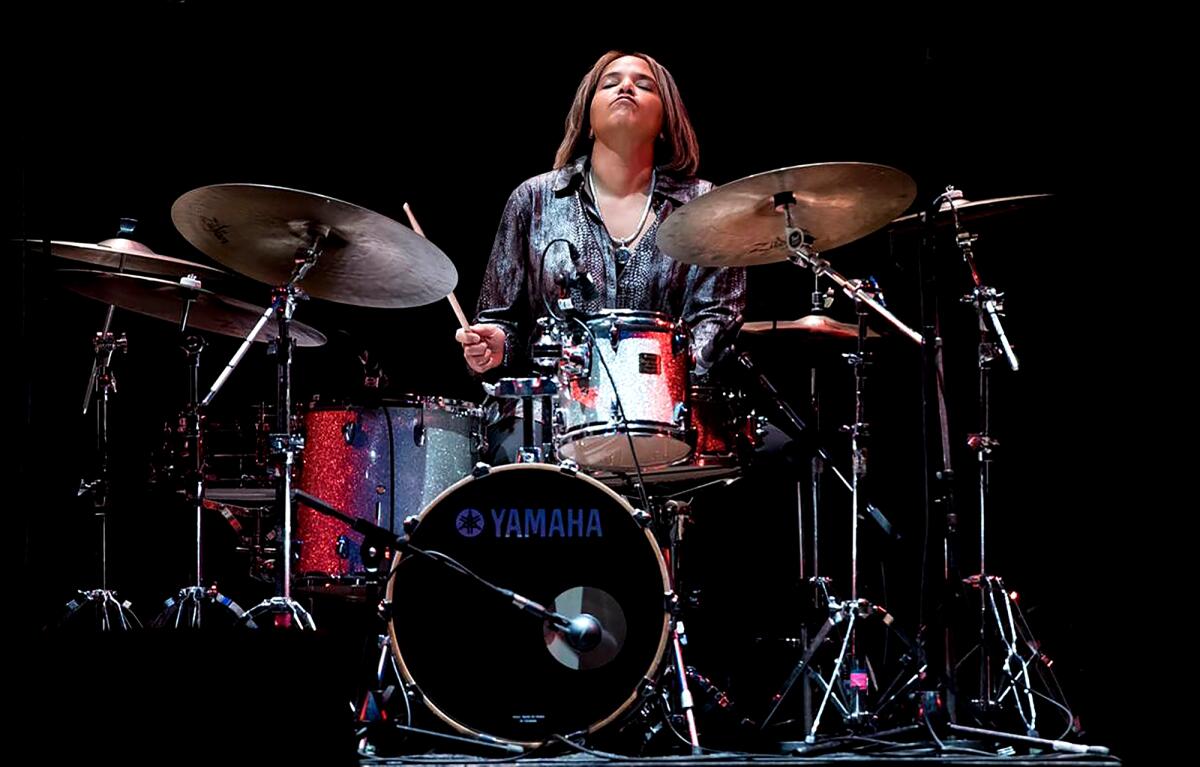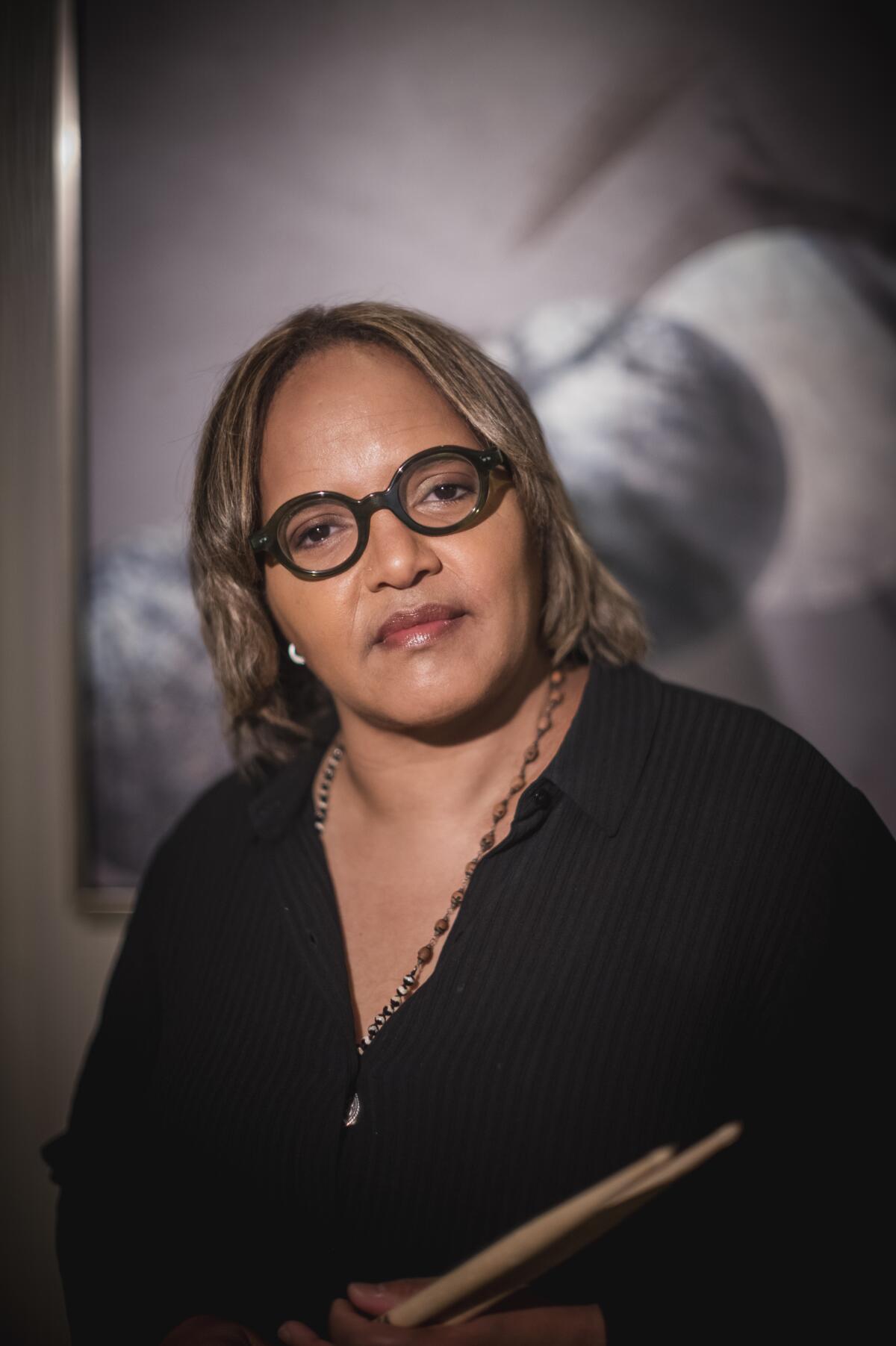“The more things change, the more they stay the same,” French writer Jean-Baptiste Alphonse Kerr said in 1849. Nearly 200 years later, that is sadly true of the greatest protest songs. In 2025, songs like Bob Dylan’s “Masters of War” and Sam Cooke’s “A Change Is Gonna Come” are as needed for their messages as they were when they were written more than 60 years ago.
So when Grammy-winning jazz drummer Terri Lyne Carrington set out this year to pay homage to one of her stick-wielding idols, the legendary Max Roach, by revisiting his seminal 1961 album, “We Insist!,” it turned out to be more than a musical tribute. In the process of recording the album “We Insist 2025!,” Carrington took time to reflect on how issues of inequality, racism and more that Roach fought against in 1961 are unfortunately just as prevalent today.
“Wow, I can’t believe that this stuff is still relevant,” Carrington says. “When we look at these examples of how things have shifted in some ways, but not in other ways, it can be very depressing, especially right now. When we started this record, the election hadn’t happened yet. I thought I knew what was going to happen during this election, and it was still relevant. But now it’s even more relevant.”
Now 59, Carrington, who also serves as Zildjian Chair in Performance at Berklee College of Music in Boston, is ready to pass along some of the fight for social justice to the younger generation.
“I do feel like it’s a youthful game. I had an uncle that I would talk to when I was in my 20s, who has since passed. He would say that this is your fight now, and I would be mad at him, feeling like he wasn’t doing more,” she recalls. “And he would say, ‘No, this is your fight now. I‘ve done it, I‘ve been there, I‘m tired.’ I get that sentiment too. I‘m going to do whatever I do, but I‘m relying on the younger generation and how pissed off I feel like they are and what that will do.”

Terri Lyne Carrington playing a drum kit.
(John Watson)
Among her many ventures to champion the jazz music she loves so much is A&R for iconic jazz label Candid Records, founded by the great jazz writer Nat Hentoff in 1960. So, she called on the younger generation to help share her vision of “We Insist 2025!”
“I thought of calling the people that had been signed or were being signed to Candid Records because I do A&R for Candid. So I thought this would be a great opportunity to also shine a light on a lot of these artists, young people and progressive artists that are being signed right now to Candid. It‘s kind of like a family gathering; we all came together to pay tribute to this great artist and this great project,” she says.
At the center of the next generation of jazz artists on the album is vocalist Christie Dashiell, with whom Carrington collaborates on the album.
“Somebody like Christie Dashiell was really important to the project, because I felt like the voice is so out front. It‘s what people relate to; the average ear relates to the voice the most,” Carrington says. “I just feel like she perfectly embodies all these different areas of Black music traditions. That was really important, so I started there. What is the voice that’s going to work with this idea?”
Having toured with Herbie Hancock and played with giants as Dizzy Gillespie and Stan Getz, Carrington has a strong sense of jazz history and rightly sees herself as a bridge between the history and future of jazz. She made sure that bridge was strong on “We Insist 2025!” by including trombonist Julian Priester on the record, who, at 89, is the last living musician who appeared on Roach’s 1961 work.

“Jazz has always been about these kinds of bridges between generations. It‘s been such an important part of jazz. Mentorship, apprenticeships — it‘s an apprenticeship art form,” she says. “So we did contemporary things with this music, but it wasn‘t so contemporary that there was no place for a Julian Priester. I think that the ability to be a bridge is important — pointing to past legacies, to the foundation of what we stand on, while trying to also point to the future or reflect the present is important.”
As much as the album‘s original political message weighs in this turbulent current climate, and as much as Carrington wanted to make the record a vehicle for younger artists, the impetus for “We Insist 2025!” was to pay tribute to Roach for the centennial anniversary of his birth. For Carrington, the heart of her interpretation was to honor the music and spirit Roach created on “We Insist!”

Jazz drummer Terri Lyne Carrington poses for a portrait.
(David Butow / For The Times)
“I had a history with reimagining projects in other people‘s work, and helping that legacy continue, but doing it in a way that also has my own identity involved in a way that really feels new, in a sense,” she says. “The music is not new, but so many elements around those things are new. So I feel like it‘s reshaping these things a little, even though we didn‘t change the lyric content. By changing the music around the lyrics, it gives the lyric a different slant.”
As one of the country‘s primary ambassadors of jazz music today, Carrington hopes the record will introduce new fans to Roach’s considerable legacy while helping to revive the soul of protest music. To that end, she has discussed bigger plans with his family.
“I‘ve talked to Max‘s son, Raul Roach, quite a bit about trying to collaborate by doing shows that would be expansive. Doing some of this music, maybe doing some other Max music, like some of the double quartet music,” she says. “So we‘ve talked about finding ways to continue this celebration of Max Roach and his artistry. There‘s a lot there as a foundation that can be expanded upon.”